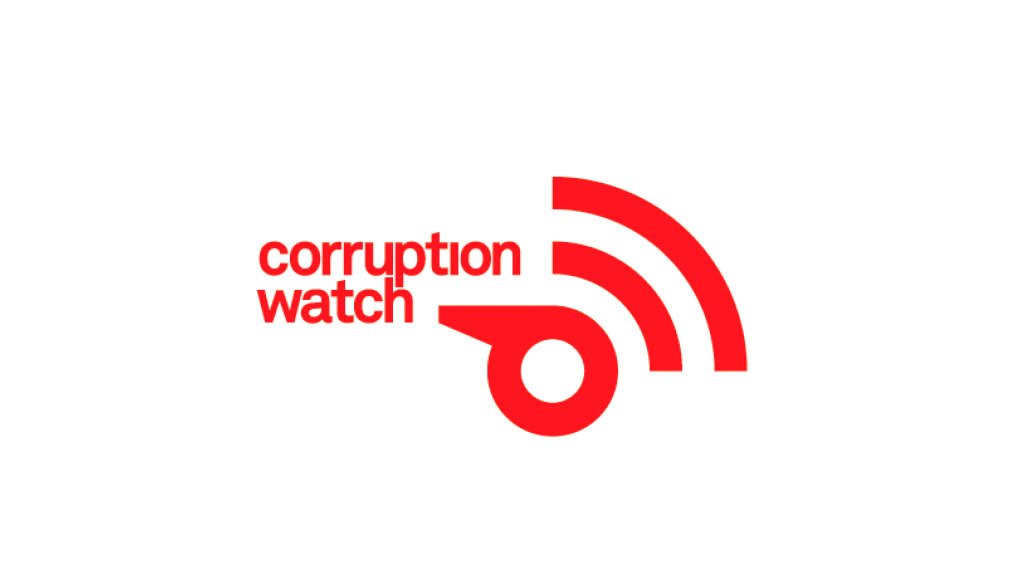Not for profit organisation Corruption Watch (CW) on Tuesday released its Analysis of Corruption Trends Report, which showed that 55% of corruption reports were made after the declaration of the national state of disaster.
Almost 2 000 people blew the whistle on corruption during the first half of the year, compared to the same period last year. This is an increase of over 400 reports received.
CW says this is unsurprising given the exposure of rampant corruption in coronavirus (Covid-19) procurement, which has enraged South Africans who are trying to survive the pandemic.
CW primary researcher Melusi Ncala said the reports that his organisation received provide a snapshot of the graft that has manifested in government, with the complicity of the private sector, and encompassing multiple sectors in society.
“The destruction wrought by corruption is silent but deadly, and it is most often the poorest in society who are brutalised by the actions of these corrupt individuals,” he said.
Of the 55% of reports, 13% allege corruption in the South African Police Service (Saps), while municipal offices, schools, and traffic and licensing centres each account for 5% of the reports, and the health sector accounts for 4%.
Ncala said these reports constitute around a third of the overall number of reports received over the period. For the second consecutive year, corruption in the policing sector has topped the list.
In terms of corruption trends, maladministration, specifically the deliberate delaying of or disregard for legal and official government processes, accounts for 19% of all reports.
This is followed by misappropriation of resources at 14% and includes theft, misuse, abuse of, and wasteful spending on State vehicles, equipment, time and funds.
Procurement irregularities account for 14% of reports and relate to irregular awarding of tenders and flouting of related processes.
Bribery and extortion and employment irregularities each make up 13% of the total reports received.
On the subject of police corruption, reports from the public reveal disturbing allegations of brutality, most evident during the early stages of the Covid-19 national lockdown.
CW says these reports speak to Saps’ lack of humanity and consideration for the members of the public whom it serves, and a blatant disregard for law and order on the part of officers and officials.
“Perhaps predictably, bribery features in 31% of reports of police corruption, highlighting how police officers solicit bribes from suspects and victims alike, as well as residents. During the lockdown period, officers seemed to act with impunity in both their behaviour and extraction of favours, patterns that also featured in the 29% of allegations relating to abuse of power,” Ncala explains.
Through whistleblowers, CW also learned how municipal officials and employees misappropriated resources through embezzlement and mismanagement of funds meant for service delivery or development in communities.
These cases account for 35% of the total, while 19% of cases involved procurement corruption, some involving businesses operating as cartels paying kickbacks to councillors in exchange for tenders.
The long-running CW campaign exposing corruption in schools still has relevance, as reports of graft by administrators and educators continue to come in.
Of the 5% of school corruption cases, misappropriation of resources accounts for 19%.
“A particularly disturbing corruption trend at the local level has been the theft of food parcels intended for the large groups of the population which suffered massive food insecurity as a result of the Covid-19 lockdown. This brings to light the greed and the lengths that those in power are prepared to go to, to profit at the expense of the most vulnerable. Corruption Watch received 67 reports of corruption relating to the provision of food parcels during lockdown,” highlighted Ncala.
The report can be accessed here: https://www.polity.org.za/article/analysis-of-corruption-trends-act-2020-2020-09-22
EMAIL THIS ARTICLE SAVE THIS ARTICLE ARTICLE ENQUIRY
To subscribe email subscriptions@creamermedia.co.za or click here
To advertise email advertising@creamermedia.co.za or click here











